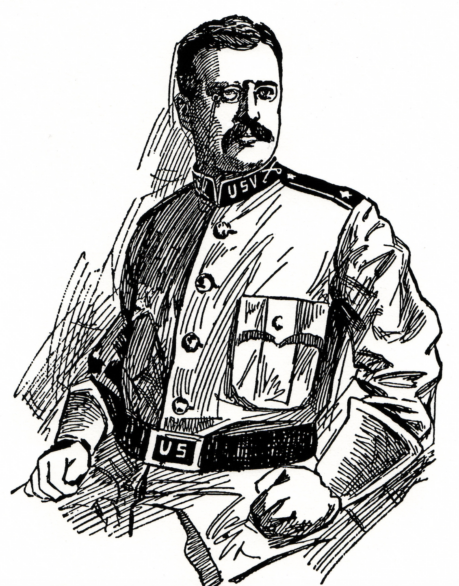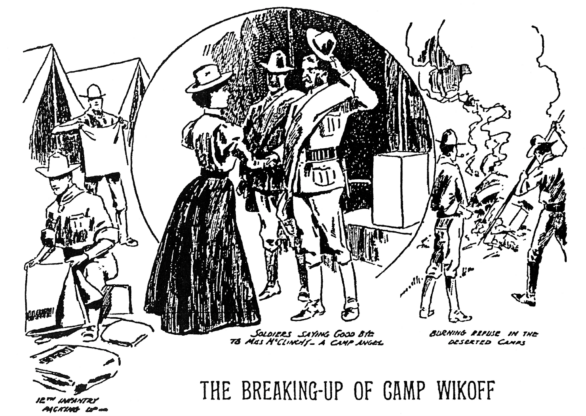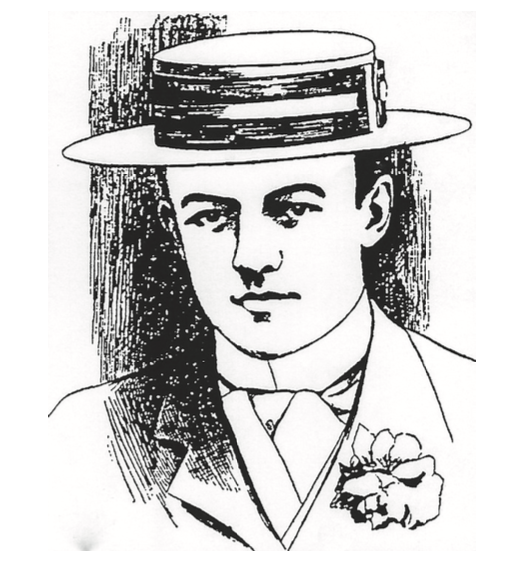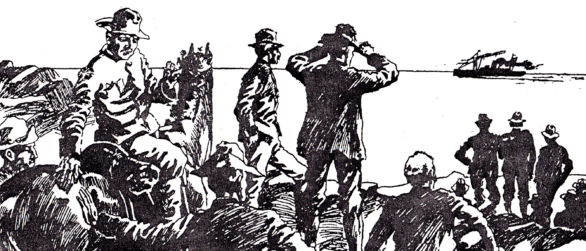

Page numbers refer to BULLY! Col. Theodore Roosevelt, The Rough Riders & Camp Wikoff,
Montauk, New York — 1898, a Newspaper Chronicle — Edited by Jeff Heatley,
published by Montauk Historical Society & East End Press,
with a grant from the Gardiner Foundation, 2023.
*************************************************
————————————————————
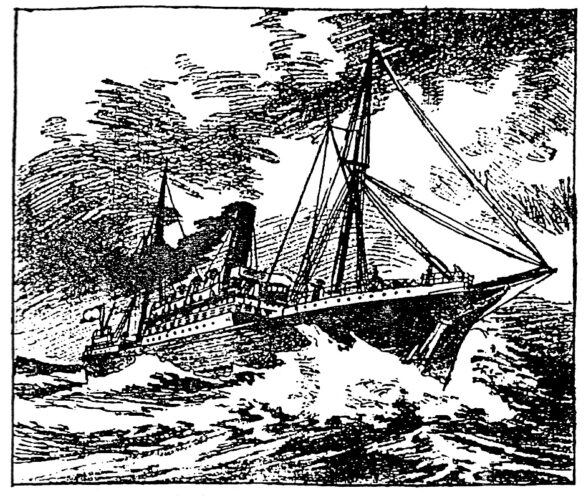
Floating Hell!
The Transport Allegheny
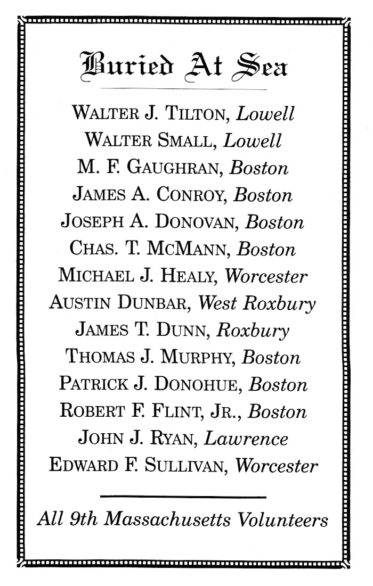
Fourteen Soldiers, en route to Montauk from Santiago de Cuba,
died on board the Transport Allegheny and were buried at sea.
[Editor’s Note: more than 60 soldiers died on transports — and were buried at sea — en route home from Santiago de Cuba.]
— Page 193, Boston Globe
———————————–
The One Canteen in Camp
— Page 196, The Sun
———————————–
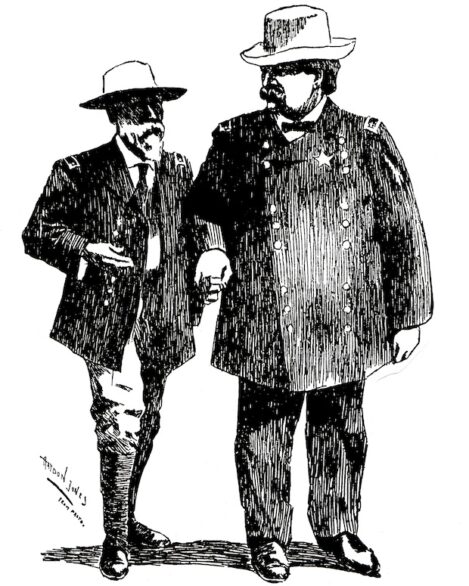
General Wheeler and Major-General Shafter
— Page 214, Hayden Jones, Illustrator / The World
———————————–
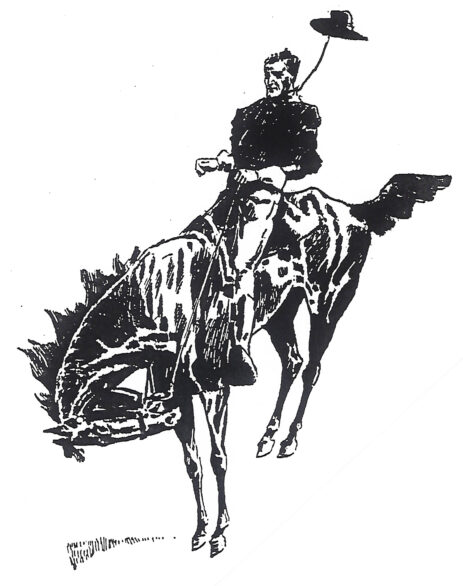
Col. Roosevelt Cheers Bronco Busting
— Page 216, The World
———————————–
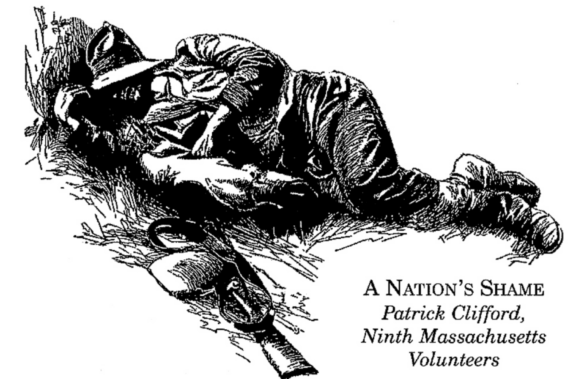
— Page 195, Heyer, Illustrator / The World
———————————–
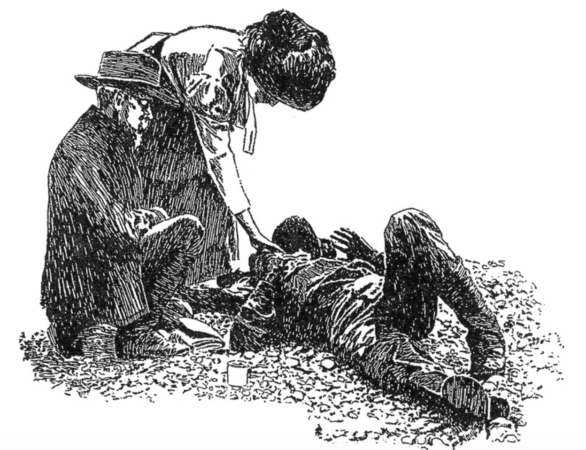
Milk for a Prostrate Regular
Surgeon Aby and Mrs. Mott w/ Soldier of the Third Infantry
— Page 220, Haydon Jones, Illustrator / The World
———————————–
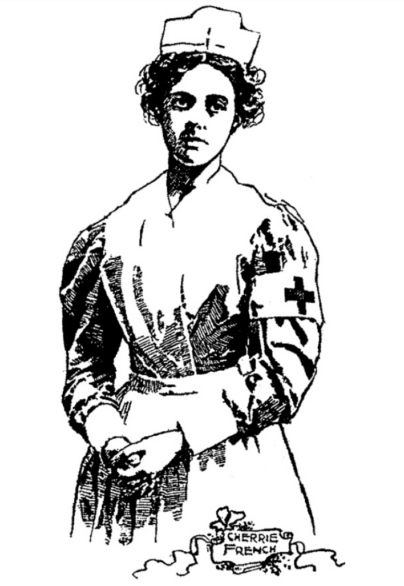
Red Cross Nurse Cherrie French
— Page 221, The World
———————————–
MONTAUK’S GREAT DAY
Pages 231 – 248, The Sun, New York Tribune, New York Times, New York Press
———————————–
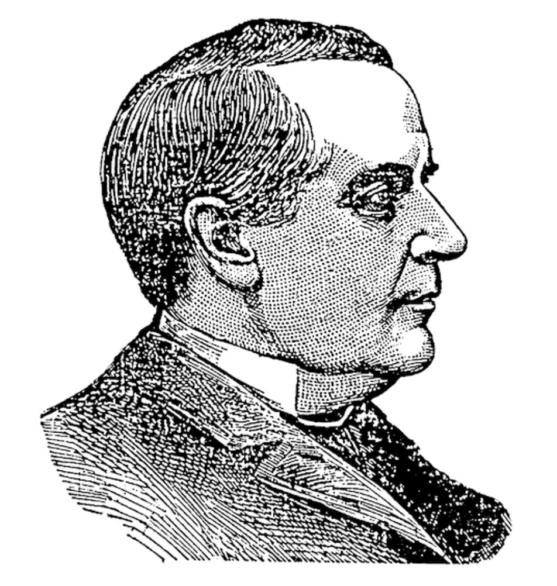
President William McKinley
Commander-In-Chief of the Joint Forces
——————
“….to secure in the island the establishment of a stable government, capable of maintaining order
and observing its international obligations, insuring peace and tranquility
and the security of its citizens, as well as own…”
— President William McKinley’s Message to Congress, April 11, 1898,
— Pp 509 – 513 Second Edition / 2023 of BULLY!
— Page 230, illustration / Boston Globe
———————————–
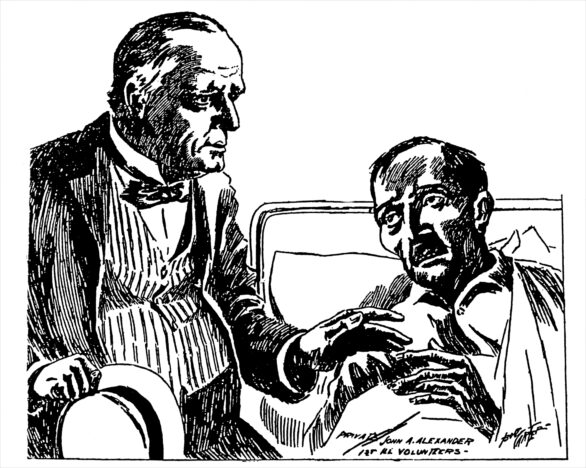
Private John Alexander Calls on the President to Visit Him
— Page 241, Carter, Illustrator / The World
———————————–
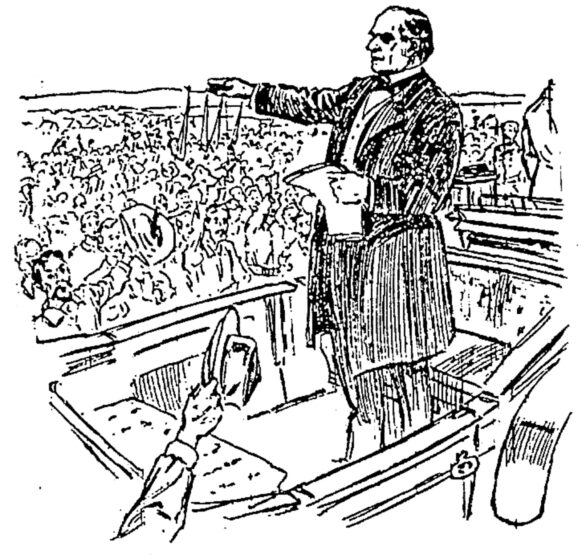
President McKinley Addressing 5,000 Soldiers
on Montauk’s Great Plain
——————-
President McKinley tells the cheering soldiers, “I bring you the gratitude of the nation
…to whose history you have added a new and glorious page.”
— Page 245, New York Herald
———————————–
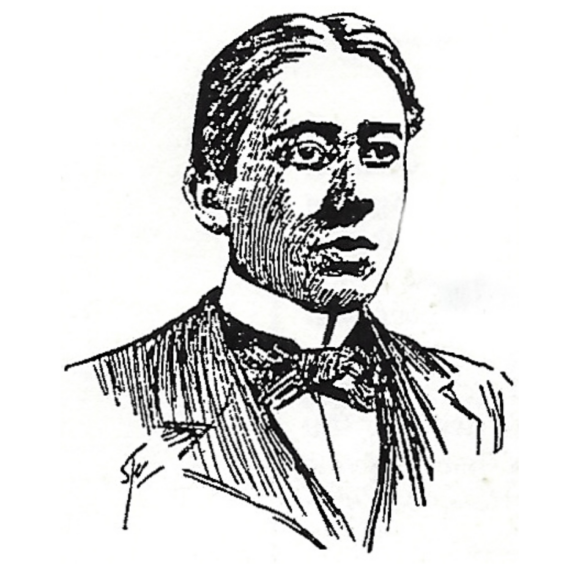
“DILWYN, MY SON, MY SON”
Dilwyn Bell, Rough Rider
— Page 250, Chicago Tribune
———————————–
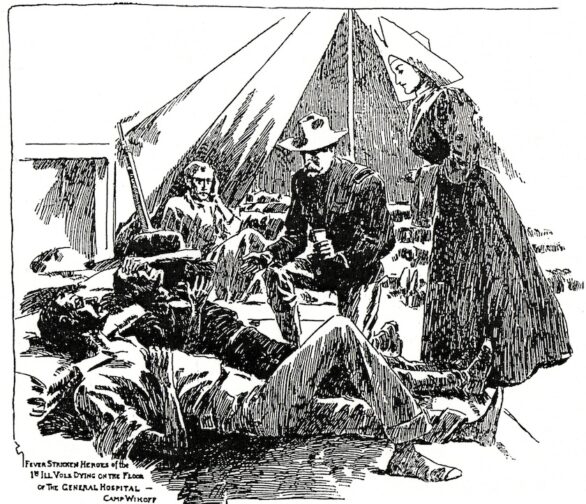
Fever Wrecks Huddled Like Sheep In A Pen
— Page 251, The World
———————————–
Roosevelt’s Sermon
— Pages 261 – 265 / Brooklyn Daily Eagle, The Sun, New York Herald, The World
———————————–
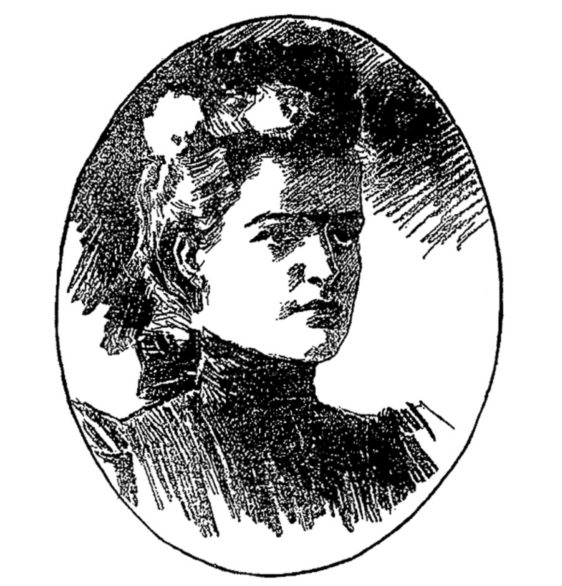
Helen Gould, Friend of the Soldiers
— Page 266, New York Journal
———————————–
Montauk’s Monte Carlo
— Pages 267 – 269 / The Sun
———————————–
Uncle Sam’s Seaside Park
— Page 271 / The Sun
———————————–
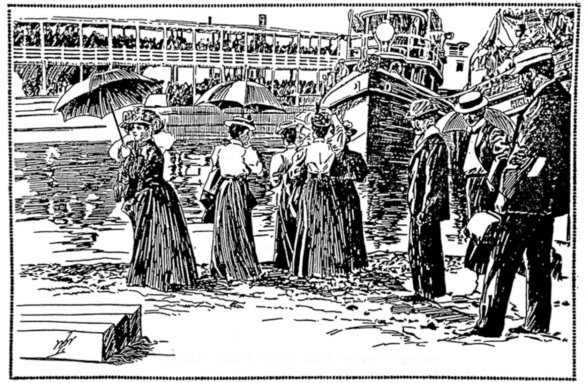
Chicagoans Greeting the First Illinois Boys, Fort Pond Bay
— Page 272, Chicago Tribune
———————————–
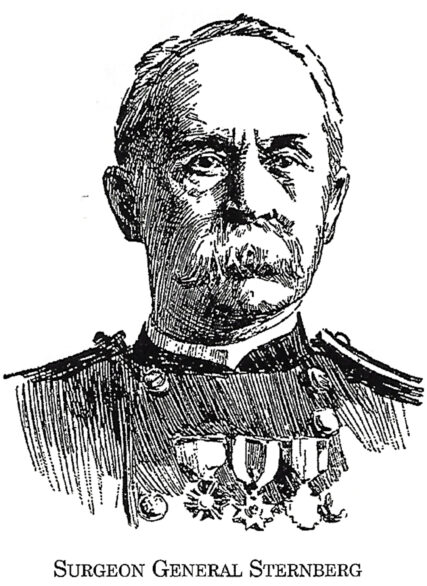
— Page 273, New York Herald
———————————–
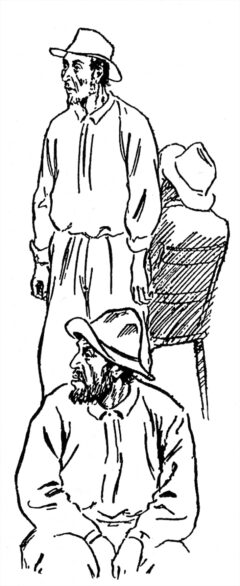
Soldiers in the General Hospital
— Page 279, W.H. Shindler, Illustrator / New York Press
———————————–
Montauk Point Light
— Pages 286 – 287
———————————–
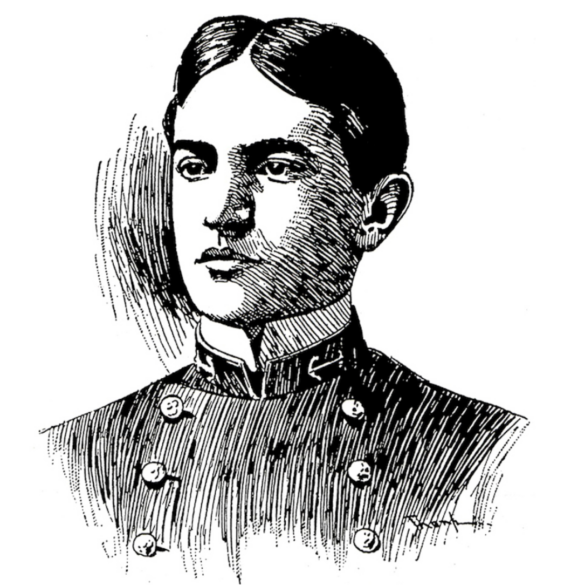
GEN. WHEELER’S SON LOST
Naval Cadet Thomas H. Wheeler, 21, Swept Out to Sea off Ditch Plains,
Trying to Save Lieutenant Newton D. Kirkpatrick
— Page 289 / Reported, Thompson, Illustrator / New York Herald
———————————–
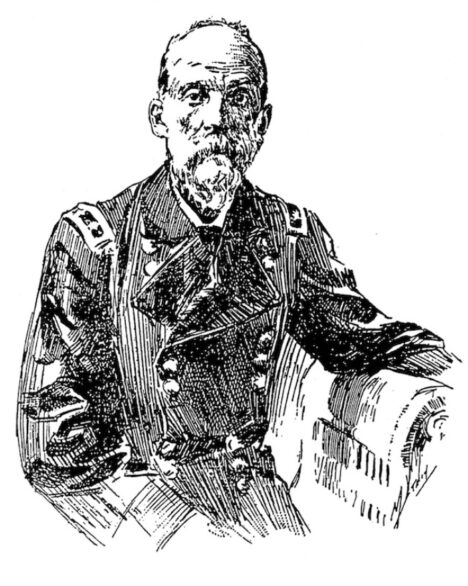
Gen. Joseph Wheeler
— Page 290, T.D.Boyce, Illustrator / New York Herald
———————————–
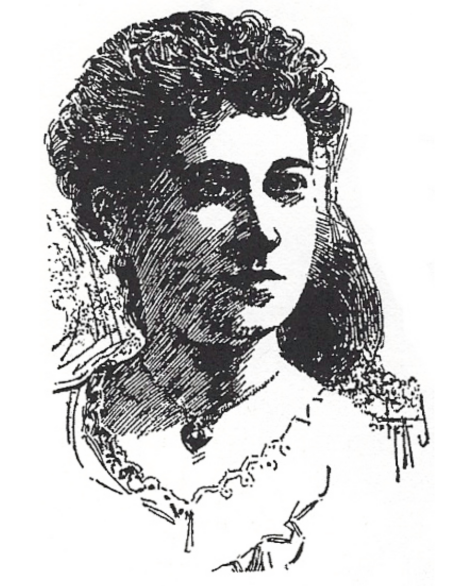
Volunteer Red Cross Nurse Eleanor L. Coe
— Page 300, The World
———————————–
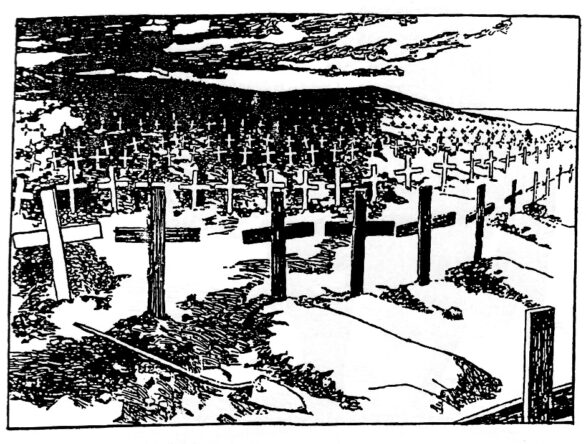
Where They Lie Buried at Camp Wikoff
[Editor’s Note: 350+ died at Camp Wikoff from malaria, yellow fever, dysentery & exhaustion / starvation
— more men died in Montauk than at the Battle of San Juan Hill. Many more would have died if not for the volunteer work of the American Red Cross and local citizens.]
— 306, Hayden Jones, Illustrator / The World
———————————–
Roosevelt’s Farewell
— Pages 323 – 326 / The Sun
———————————–
Colonel Theodore Roosevelt Bids His Rough Riders Farewell
As They Are Mustered Out of Service, September 14, 1898.
——————
Col. Roosevelt tells the Rough Riders,
“You cannot imagine how proud I am of your friendship & regard.”
— Illustration, opposite page 1 / The Traveler
— Page 325, The Sun
————————————
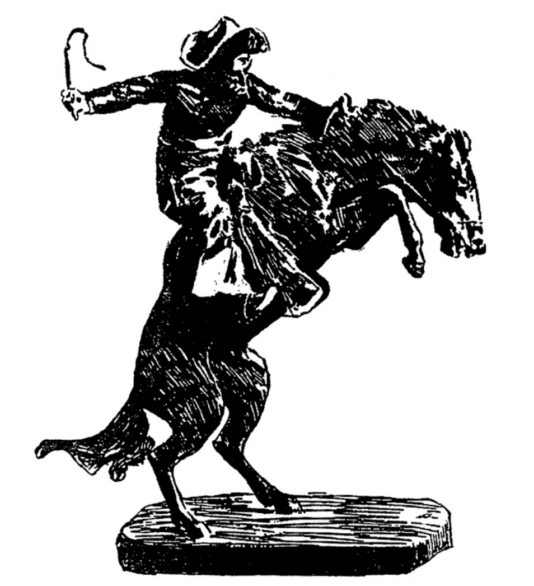
In Appreciation, The Rough Riders Give Him
Frederic Remington’s Bronze Bronco Buster Sculpture
— Page 328, The World
———————————–
— Page 330, The World
———————————–
Roosevelt’s Summer Home
— Pages 331 – 334 / Brooklyn Daily Eagle
———————————–
A Tonic Quality to the Air
— Page 337 / The Sun
———————————–
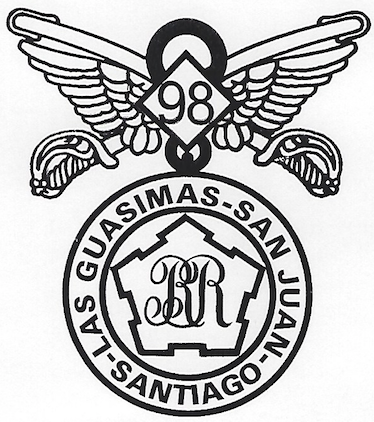
Rough Rider Commemorative Medal,
designed by Rough Rider Frederick Wingte of Company I.
— Page 338, Rendering by George Bloem, 1997.
———————————–
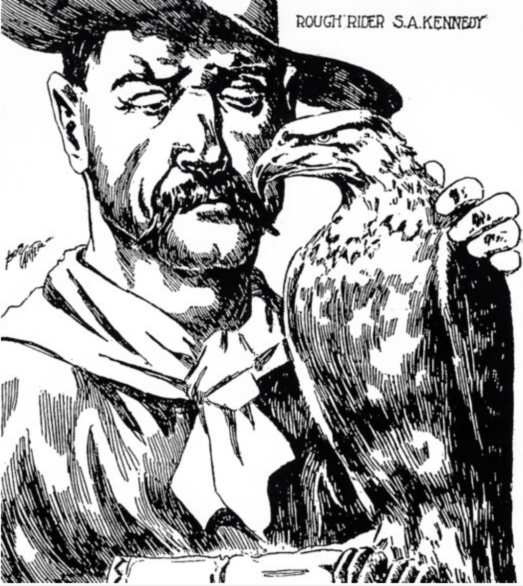
Teddy, The Golden Eagle Mascot,
w/ Rough Rider S.A. Kennedy
— Page 352, Carter, Illustrator / The World
———————————–
Ministering Angels
— Page 354 / The Corrector (Sag Harbor)
———————————–
Woman At Camp Wikoff
— Page 355 – 357 / Commercial Advertiser
———————————–
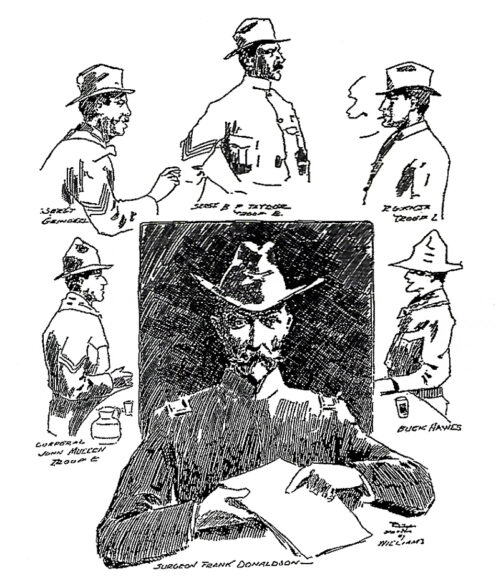
“Teddy’s Terrors” Visit New York
— Page 366, Williams, Illustrator / The World
———————————–
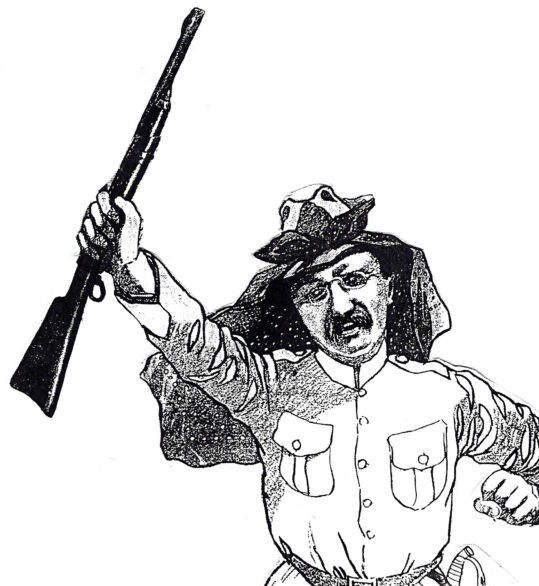
“That handkerchief of the Colonel’s…is, to my mind,
the greatest relic of the war,” said a Rough Rider.
— Page 371, The World
———————————–
The Versatile Mr. Roosevelt
— Pages 372 – 373 / Washington Post
———————————–
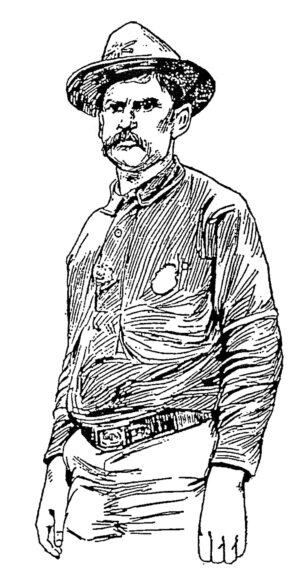
Bill Woods, Rough Rider: Bronco Buster
“Nobody ain’t got no use for a horse that can unseat Bill Woods,”
said Alvin C. Ash, Rough Rider, “and he’s pizen with a six-shooter.”
— Page 375, Boston Globe
———————————–

William Tiffany’s Horse & William Tiffany
Rough Rider Tiffany died of starvation in Boston.
His horse was purchased at auction by his brother Perry.
— Page 379, The World
— William Tiffany portrait & report of his death , Pp 526 – 528 / see also Army Beef Scandal of 1898, in the Appendix, as well / second edition, 2023
—————————————————————————
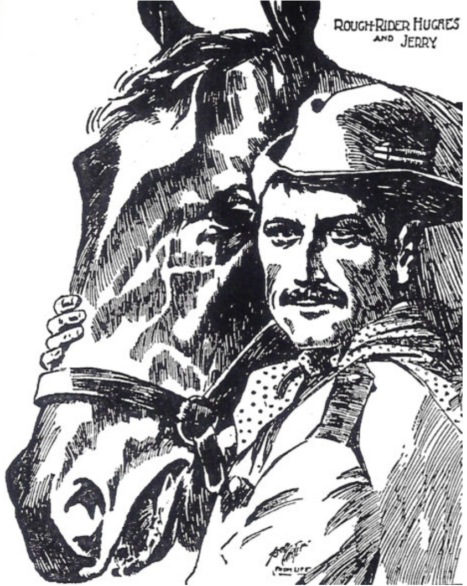
Rough Rider & His Horse Jerry
— Page 380, Carter, Illustrator / The World
———————————–
The Decline of Cavalry
— Page 381 / Kansas City Star
———————————–
Peace Jubilee
— Pages 383 – 391 / New York Times, Boston Globe, New York Herald
———————————–
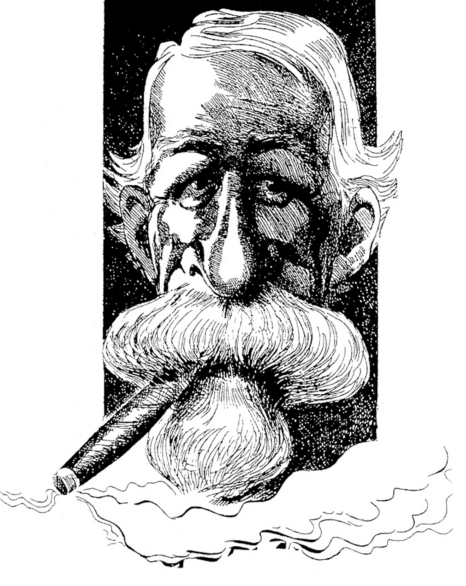
Sec. of War Alger as portrayed by the Artist Luks
— Page 392, The World
———————————–
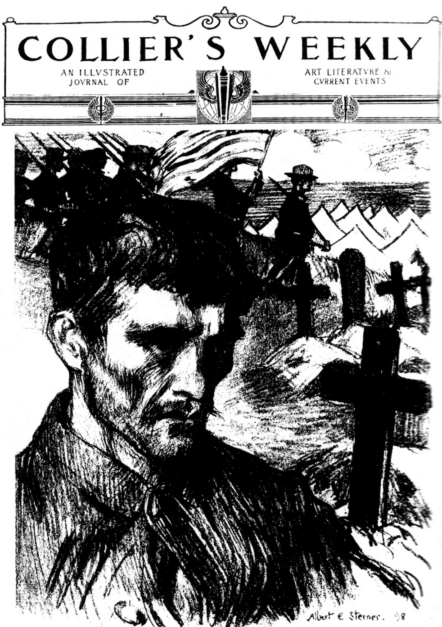
HOME!
— Page 394, Cover, Collier’s Weekly, Albert Sterner, Illustrator
———————————–
An Illustrious New York Name
— Pages 408 – 410 / The Sun
———————————–
Not Really a New Yorker
— Page 410, William Randolph Hearst / New York Evening Journal
———————————–
How Roosevelt Swept The Field
— Pages 411 – 419 / New York Herald, Commercial Advertiser
———————————–
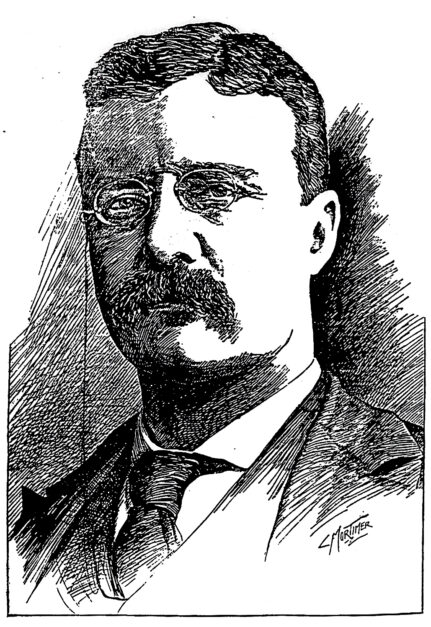
Theodore Roosevelt Nominated Republican Gubernatorial Candidate
at the Republican Convention in Saratoga, September 27, 1898.
— Page 412, Mortimer, Illustrator / The World
———————————–
Recalling a Day at Camp Wikoff
— 421 – 424 / Riverhead News
———————————–
Roosevelt Fires First Campaign Gun
— Pages 427 – 441 / New York Times, The Sun, The World, Commercial Advertiser, New York Press
———————————–
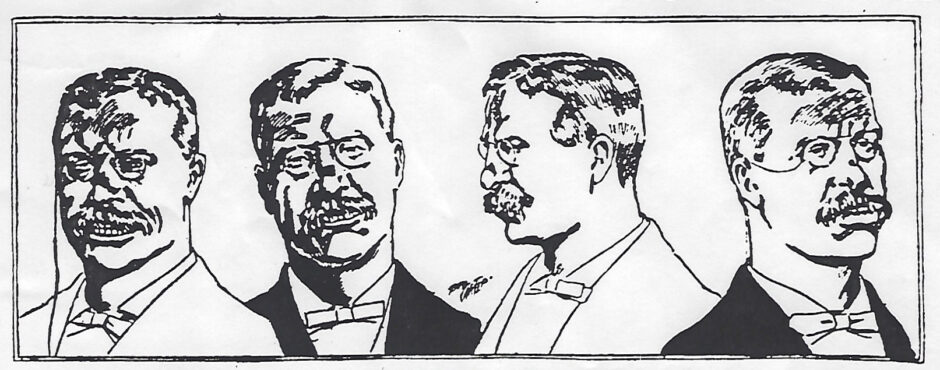
Roosevelt Speaking at Carnegie Hall
“They were American soldiers, no more and no less. Living, each one strove incessantly to do even more than his duty, scorning to do less, and ashamed to falter or ask for aid; yet always glad to help a brother who, however willing, was weaker. Dying, each faced with equal courage the fate which, in an instant of time, blots out all the differences that we rear with such infinite labor on this earth. Living and dying they gave us a lesson in American citizenship, and this lesson which they taught in the war,
let us profit by as we live in peace.”
————————————————
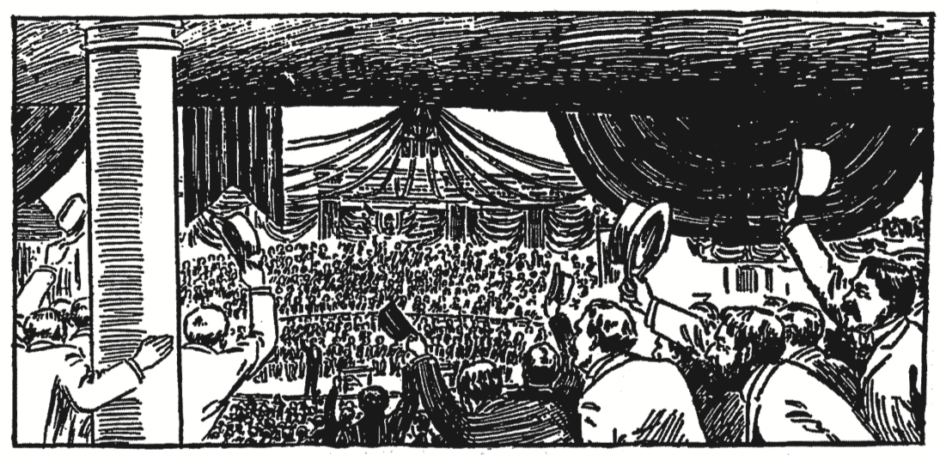
— Top / Page 437, Carter, Illustrator / The World
— Quotation / Page 441, New York Press
— Bottom / Page 440, W.H. Shindler, New York Press
———————————–
A Beautiful Ceremony in Montauk
— Pages 442 – 443 / John H. Hunt, Editor, Sag Harbor Express
———————————–
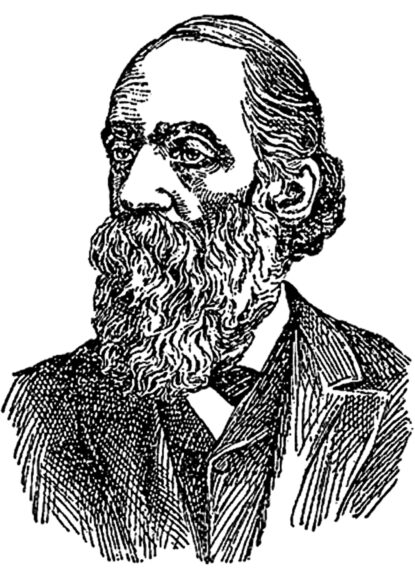
General Wheeler: A Modern Paladin
— Page 443, Washington Post
———————————–
CAMP WIKOFF ABANDONED
OCTOBER 9, 1898
Secretary of War Alger directs the Seventh US Infantry relieved of duty at Camp Wikoff
and to proceed to the Department of the Lakes…effectively closing the encampment.
The Seventh left camp on October 14th.
— Page 444, The Sun
———————————–
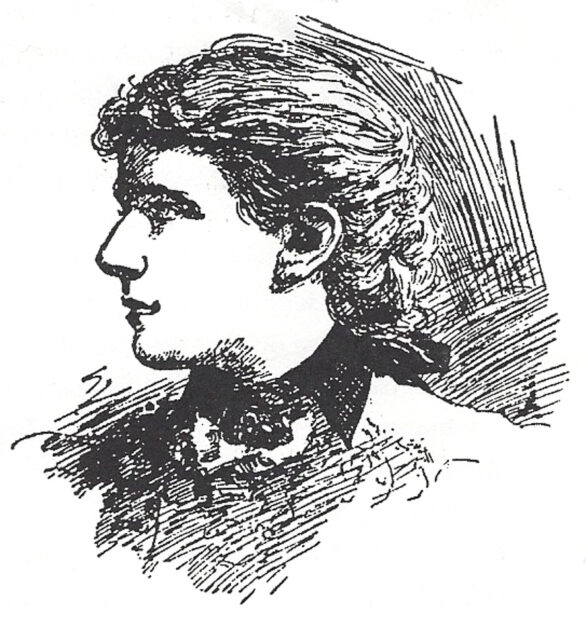
Reubena Hyde Walworth, Heroic Nurse
Reubena Hyde Walworth, daughter of Ellen Hardin Walworth, Directress-General of the Women’s War Relief Association, died of typhoid fever contracted in the Detention Hospital at Camp Wikoff, while serving as a volunteer nurse.
— Page 447, New York Press
———————————–
The Gloom of Montauk
— Page 448, E.S. Boughton, East Hampton Star
———————————–
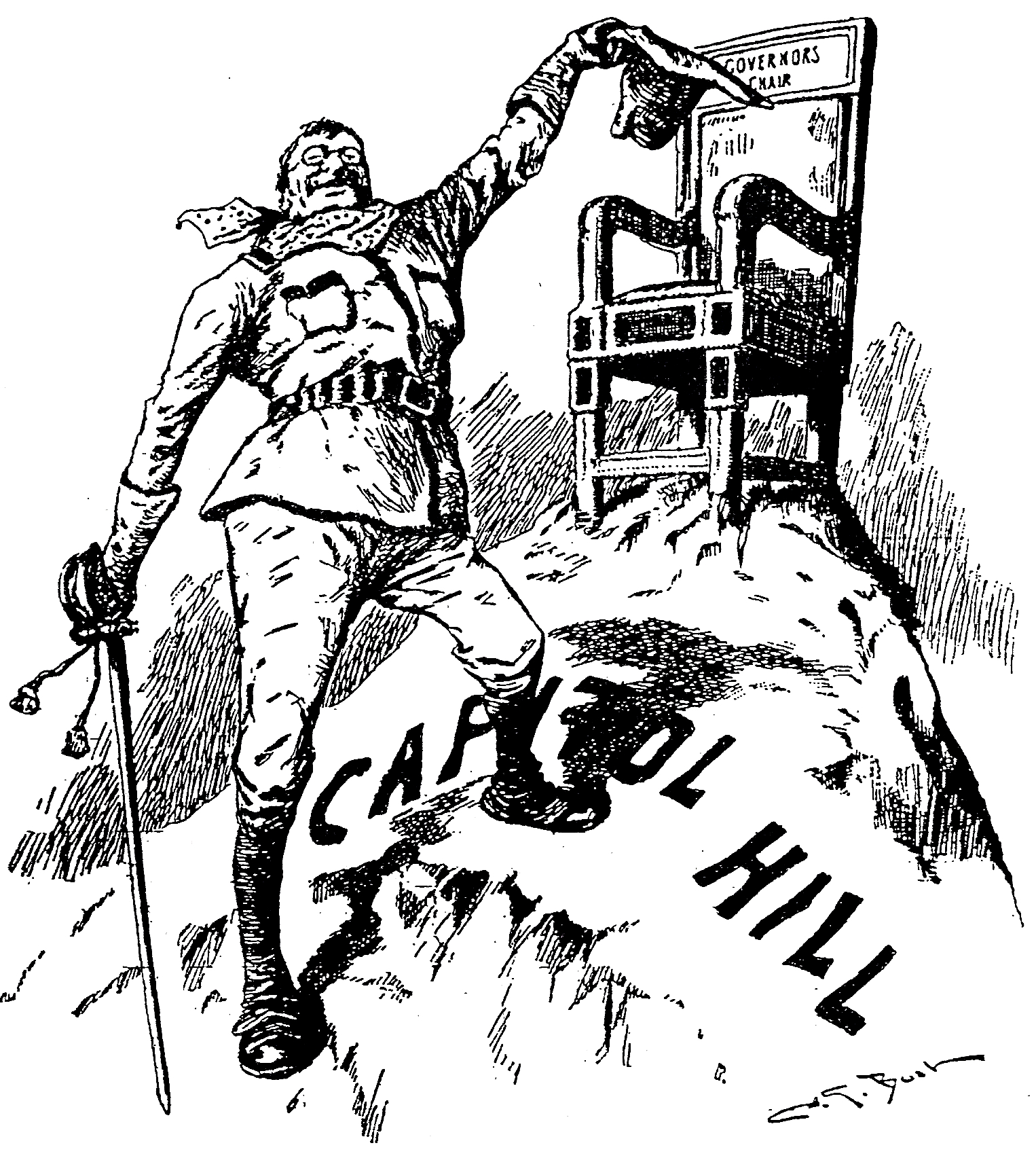
THE ROUGH RIDER’S LATEST CHARGE
————————
“The people of New York want him for their governor…
The people of the United States will want him to govern them next,
and they will have him for President.
I told him so on the ship, and he laughed a great deal.”
— Page 80, General Joseph Wheeler / Commercial Advertiser, August 17, 1898
**************************************************
ROOSEVELT VICTORIOUS
November 8, 1898
— Page 450, Bush, Illustrator / The World
————————–
Col. Roosevelt deserves all honor and credit for the victory in the State, for I am certain
that he is the only man who could have carried our standard to victory this year.
Besides his strong personality, he possesses remarkable physical resources,
which were no small factor in the campaign just ended.
Senator Thomas C. Platt, as reported in the Commercial Advertiser, Page 453.
————————–
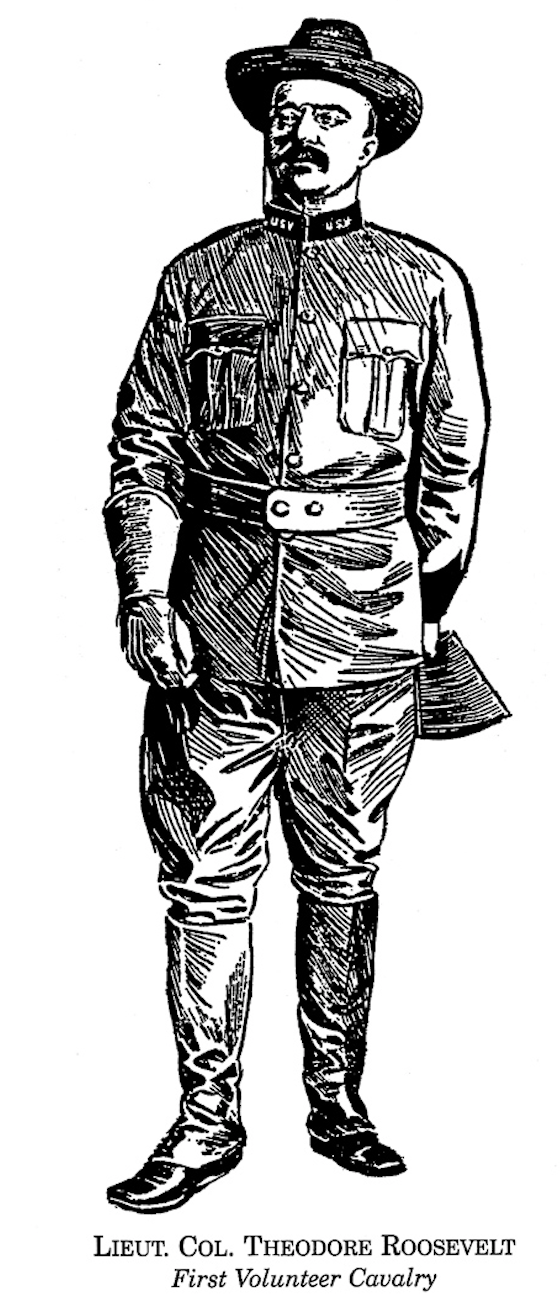
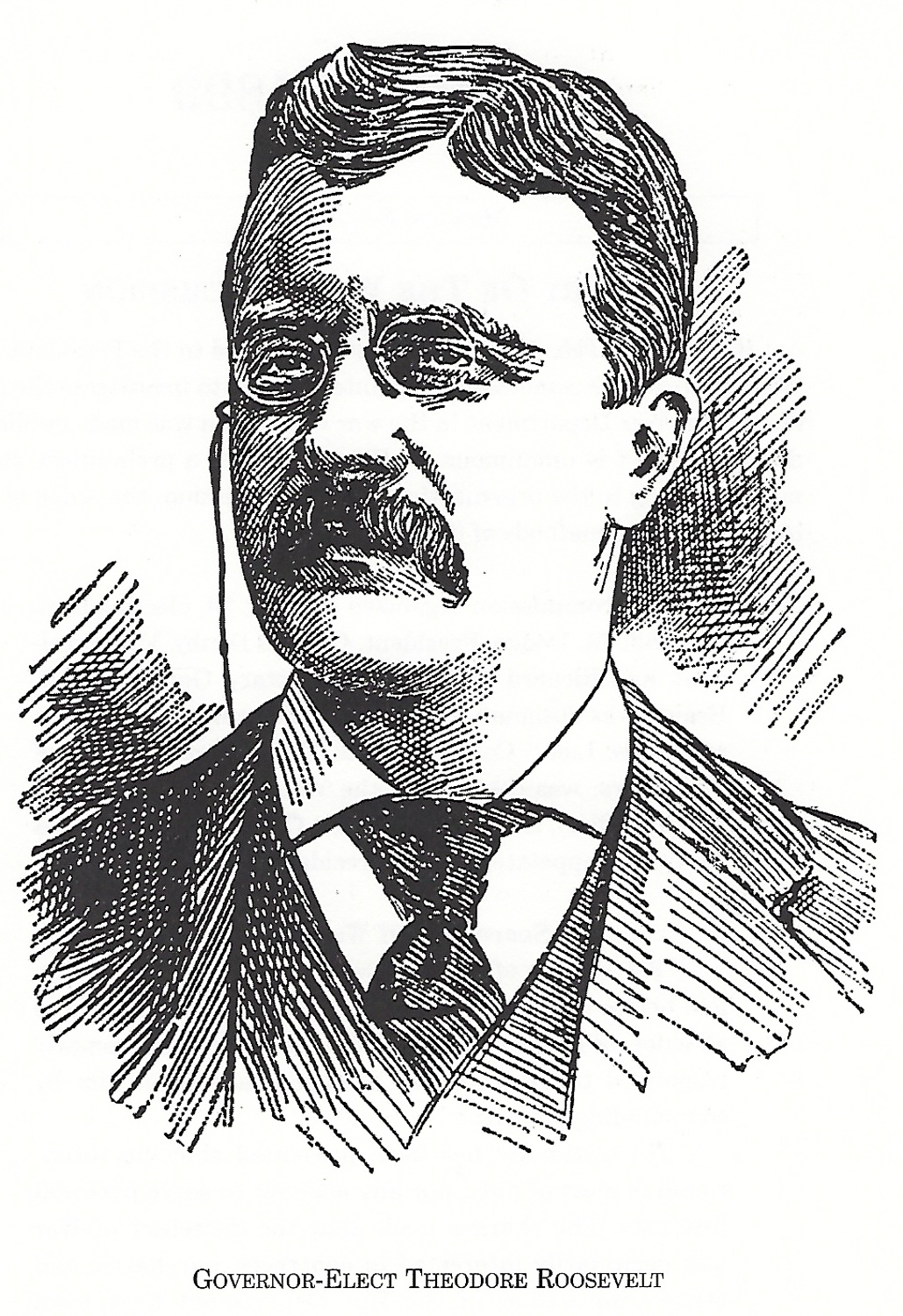
— Page opposite title page (left) ‘The ideal of the beau sabreur — dashing, fearless, full of vim.’ / Boston Globe, June 6, 1898.
— Page 455, ‘Governor-Elect Theodore Roosevelt’ / Boston Globe, November 9, 1898.
————————–
Governor Roosevelt
— Page 454 / New York Tribune
~~~~~~~~~~~~~~~~~~~~~~~~~~~~~~
REPORT OF THE WAR COMMISSION
February 13, 1899
On the whole, it may be said that Montauk Point was an ideal place for the isolation of troops
who had been exposed to or had yellow fever, and for the recuperation of those greatly debilitated
by malarial attacks of marked severity.
— Page 458, New York Times
~~~~~~~~~~~~~~~~~~~~~~~~~~~~~~
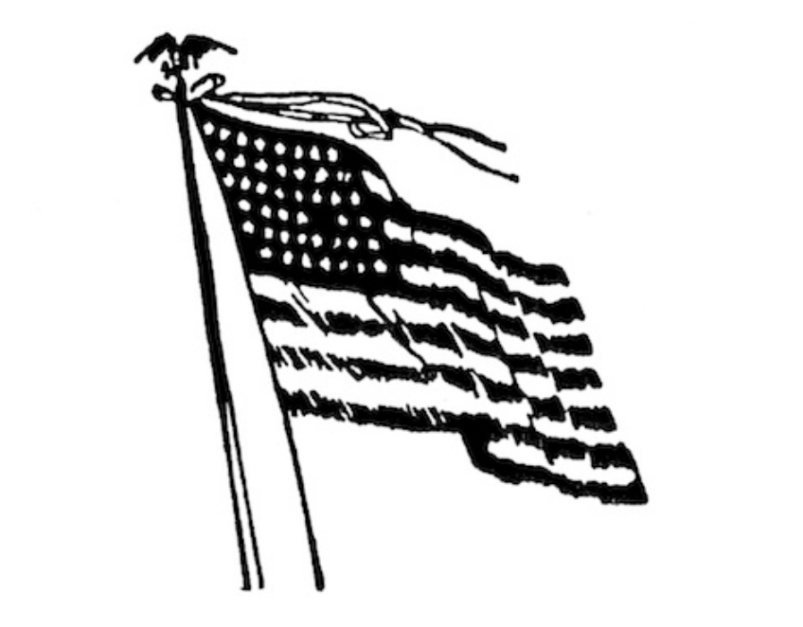
=================================================================

Portraits / One — August, 1898 | link
—————————-
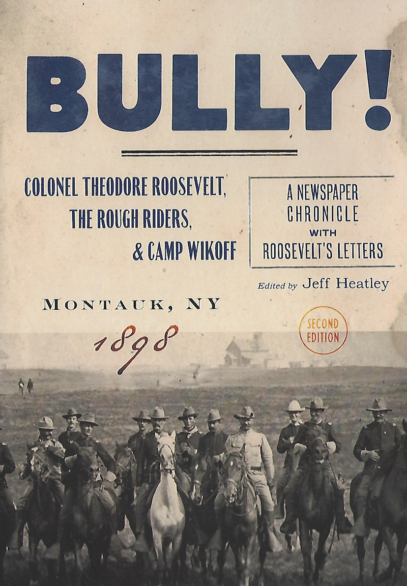
————————-
First illustration: ‘Waiting The Arrival Of The Gate City’ (not in either edition of BULLY!) / The World
[Ed: The Gate City was the first transport to arrive from Santiago de Cuba — docking at Fort Pond Bay August 14, 1898]
——————————-
Visit: Camp Wikoff, National Military Park Proposal
———————————————–

Exclusive Portfolio | AAQ / East End
______________________________________________________________

